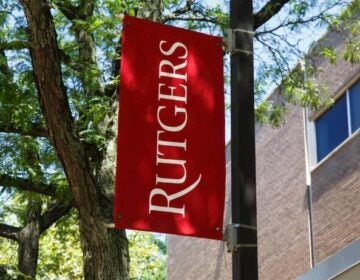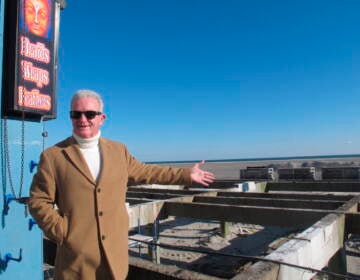Gloucester City to be new home of first organic waste to renewable energy plant in U.S.
Though the Southport section of Gloucester City has been neglected by industry for many years, it will soon take center stage as the site of the first organic waste to renewable energy plant in the United States.
The world-class facility, which will be operated by Organic Diversion of Marlton, will use cutting edge green technology to revolutionize the current food and yard waste disposal system in South Jersey.
According to the EPA, food waste is the second largest trash stream for municipalities behind paper products. However, a large percentage of paper waste is recycled. Less than three percent of organic waste is recycled and in 2010, 33 million tons of food waste reached landfills and incinerators.
Organic Diversion of Marlton plans to change those statistics. CEO Rocco D’Antonio explained that there are much better uses for organic waste than festering in landfills. Recycling it into compost and renewable energy is “commonplace in Europe… and it is a cost effective way of dealing with this problem.”
In anticipation of the plant’s construction, the company already collects food waste from a number of local commercial accounts for composting. The clients range from restaurants to supermarkets, hospitals and schools, which produce anywhere from a few hundred pounds to 10 thousand pounds of food waste each week. Organic Diversion collects their waste and transports it to a number of different composting facilities.
When the new facility is built, however, it will be able to maintain a volume of approximately 200 tons of food and yard waste daily. In addition to composting, the organic waste will be turned into renewable energy.
The process is “fairly involved,” D’Antonio said. In an oxygen free environment, micro-organisms break down organic materials in a process called anaerobic digestion. Biogas is released which can then be turned into energy. The solid residual can be transformed into compost. Organic Diversion plans to sell both products wholesale.
Community concerns
Even though Southport was essentially abandoned by the industry, residents of Gloucester City and neighboring Brooklawn were skeptical when the plan was introduced. Many residents first thought of trash and unpleasant smells, said Gloucester City Administrator Jack Lipsett.
Residents were “very upset and very concerned,” explained D’Antonio.
To address their concerns, D’Antonio presented Organic Diversion’s plan at a city council meeting in 2010. Nearly 100 residents attended the three hour meeting, which addressed many of their questions and concerns. By the end of the meeting, D’Antonio said Organic Diversion say they had “almost complete support.”
He explained that the biggest concern was that the plant would create an offensive odor in Gloucester City. Organic Diversion’s design focuses on minimizing the smell potential. D’Antonio said that the plant will use negative pressure, meaning that when a door is opened, it will take air in, but not let air out. Trucks will unload inside the plant. The digestion technology itself destroys 90-95% of the odor causing compound found in organic waste but will be completed in an airtight chamber anyway. Though air will be filtered internally, any air that is released back into Gloucester City will pass through an additional biofilter.
Some residents were also worried about an increase in the number of trucks passing through the city, D’Antonio said.
Organic Diversion’s plan is to build relatively small, local plant designed to serve the community within a 15 mile radius. He expects the traffic increase will be around 25 trucks per day.
Though the Gloucester City plant will be the first of its kind, D’Antonio explained that Organic Diversion plans to expand similar operations from New England through Northern Virginia.
Since it will cost approximately $30 million to build the plant, D’Antonio said they have to be “really confident” that it will work with and for the city.
Funds for the plant’s construction come from renewable energy grants, investors, capital and some debt.
Despite the initial pushback, Lipsett said, “The residents are now overwhelmingly supportive of it.”
Organic Diversion and Gloucester City are working with the NJ Department of Environmental Protection to get the Southport site ready.
It has been “contaminated and fenced off for decades,” said D’Antonio. Once the remediation of the site is complete, Organic Diversion will need permits to begin building. Lipsett said that he expects all the obstacles to be overcome quickly and targets a June groundbreaking.
WHYY is your source for fact-based, in-depth journalism and information. As a nonprofit organization, we rely on financial support from readers like you. Please give today.




